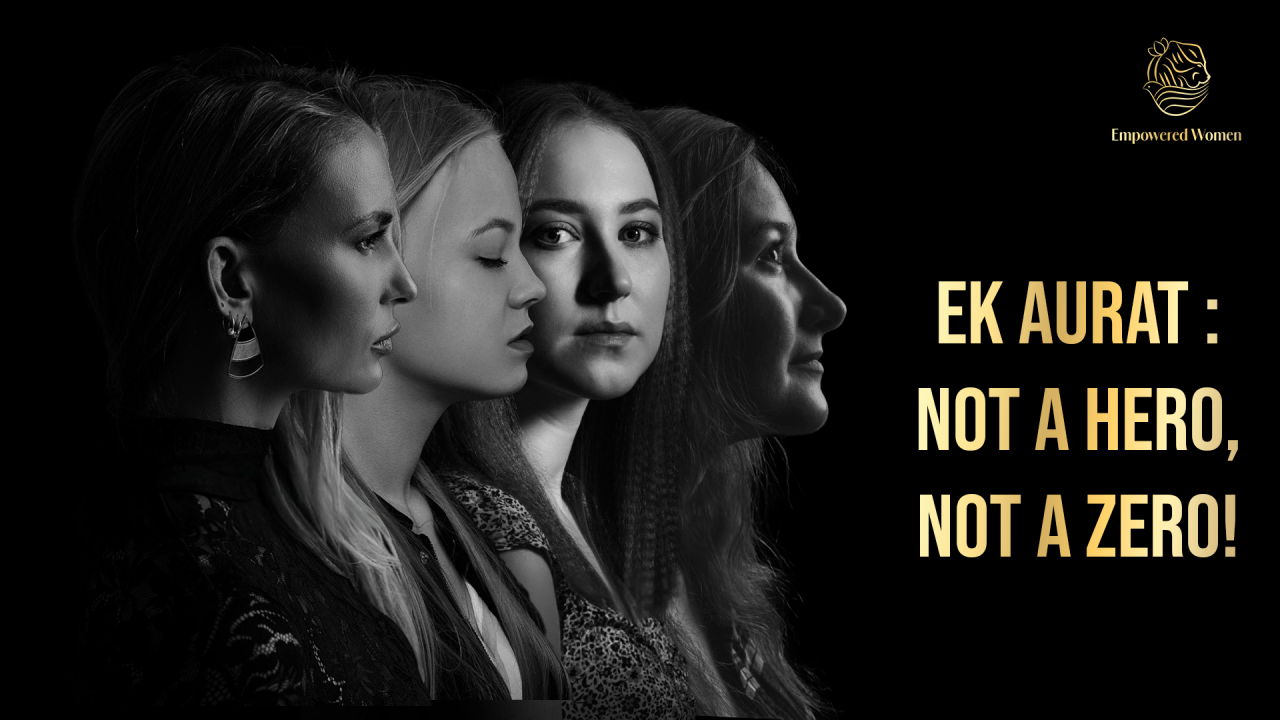Meet Ek Aurat. She’s like every woman you know—balancing work, family, and her own aspirations. But while she’s juggling her life, there’s a constant background noise that follows her everywhere. This noise?
“Stereotypes and judgments that seem to have a permanent spot in her world, shaping how society sees her, regardless of what she does”
Let’s walk in her shoes for a day, shall we?
Morning: The “Good Wife” or the “Lazy One”?
Ek Aurat wakes up early. She’s on her feet before the sun, trying to get her house in order. If she has a family, she’s making breakfast, getting the kids ready for school, and preparing for her own workday. But here’s the catch—no matter how hard she works, there’s always a label ready for her.
If she’s a housewife, people say, “Oh, you’re just at home all day? Must be nice to do nothing.” It’s almost as if managing a household, raising kids, and making sure the family runs smoothly isn’t real work. Who knew that keeping a family fed, clothed, and happy was the easiest job in the world?
But if she’s a working woman, it gets even trickier. “How can she manage both work and home? Something must be suffering.” Well, excuse her for not having clones of herself to meet everyone’s expectations! It’s like she’s supposed to be in two places at once, doing two full-time jobs, while still looking perfectly put together.
Afternoon: The “Overly Ambitious” or the “Not Ambitious Enough”?
At work, Ek Aurat faces a whole different set of judgments. If she’s career-driven, people say, “She’s too ambitious. Does she even have time for her family?” It’s as if being passionate about your career means you’re automatically a bad mother or wife. The unspoken rule seems to be: ambition is only admirable in men, but if a woman shows too much of it, she must be neglecting her home.
On the flip side, if she chooses to focus on her family, the whispers change to, “Why isn’t she pushing harder in her career? She’s wasting her potential.” So apparently, she’s lazy if she’s at home, and she’s selfish if she’s working. Good luck trying to win that game.
It’s almost like she’s expected to be a perfect blend of every ideal—a little bit of Mother Teresa, a dash of Sheryl Sandberg, and of course, the grace of a Bollywood heroine who never has a hair out of place. No big deal, right?
Evening: The “Perfect Parent” or the “Neglectful Mother”?
When it comes to parenting, the judgment goes into overdrive. If Ek Aurat’s child gets sick, it’s her fault. “What kind of mother can’t even keep her child healthy?” As if she’s supposed to have magic powers to protect her child from every germ and virus. But if her child is healthy, no one gives her credit. It’s like it must have happened by chance. After all, who trusts a mother’s instincts?
And let’s not forget the unsolicited advice from all corners. Whether it’s family members, neighbors, or even strangers on the internet, everyone seems to know better than Ek Aurat how to raise her own child. Shouldn’t she be grateful for the endless stream of opinions?
Of course, if her child excels at something, everyone praises the father. “He’s doing such a great job supporting the family.” Right, because a mother’s role is just an accessory in the child’s success story.
Night: The “Too Emotional” or the “Too Cold”?
After a long day of judgment and stereotypes, Ek Aurat finally gets a moment to breathe. But even in her own thoughts, the labels follow her. If she speaks out about the unfair treatment she faces, people say she’s too emotional, too sensitive. “Why can’t she just let things go?” If she stays silent, then she’s criticized for being too cold or distant.
It’s like she’s stuck between two impossible choices: speak up and be labeled emotional, or stay quiet and be seen as indifferent. Either way, the world seems to have an opinion ready.
The Satire of It All
The irony in all of this is that, no matter what Ek Aurat does, there’s a judgment waiting. If she’s too good at something, it’s suspicious. If she struggles, it’s her own fault. Society has created a web of expectations for women that are so contradictory, it’s laughable. And yet, women like Ek Aurat face these judgments every day, silently laughing (or maybe crying a little inside) at how ridiculous it all is.
After all, why does it matter what she chooses to do? Whether she stays at home, works, raises kids, or doesn’t, Ek Aurat’s choices should be respected. She’s not asking for applause or recognition—just a little understanding that she’s doing her best in a world that seems determined to misunderstand her.
In the end, Ek Aurat doesn’t want to be a superhero, nor does she deserve to be treated like a zero. She’s just a woman, navigating life the best way she knows how. Her struggles, her triumphs, and her failures are part of her human experience. And maybe, just maybe, it’s time we start seeing her as that—human, with all the complexities that come with it.
Because, after all, isn’t that what we all are?




